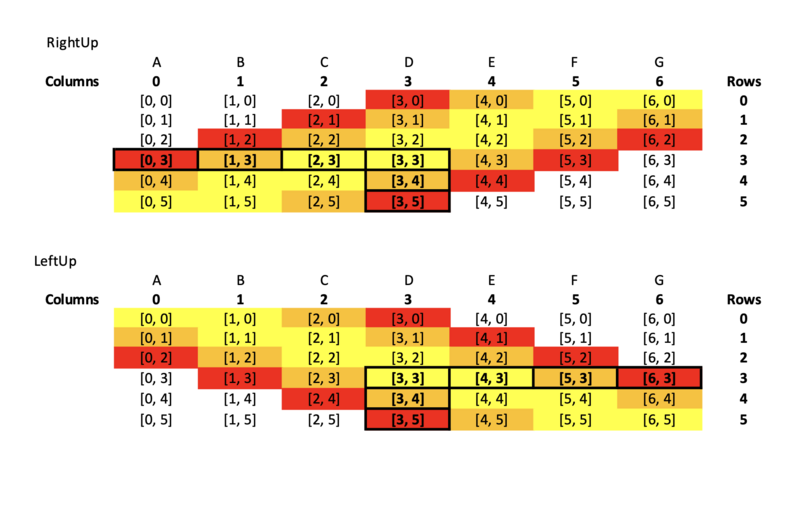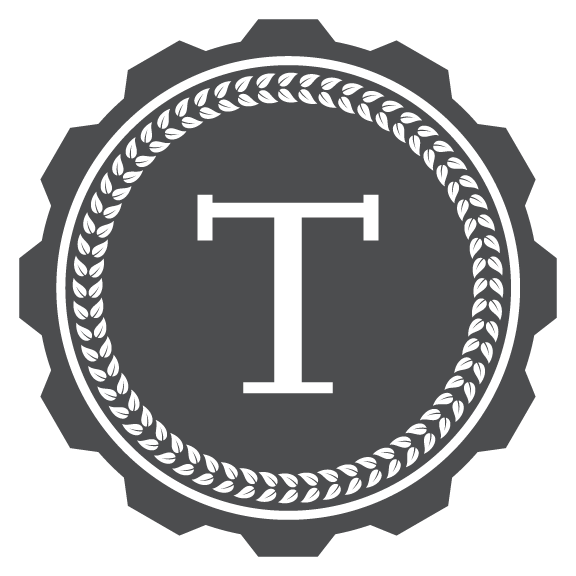About me
After spending seven years as an environmental and sustainability professional, I realized I was ready for a change. While my passion for a sustainable future remains, I was keen on finding a new way to harness my skill set. I desired a career that would build on my creativity, problem-solving, and collaborative nature. These career goals, alongside a lifetime of interest in computers and technology led me to the world of software development.
In the fall of 2022, I enrolled at Turing School of Software and Design in Denver, where I dedicated over 1,500 hours to mastering backend development, with a focus on Ruby on Rails, Ruby, SQL, PostgreSQL, and other technologies. In addition, my commitment to a test-driven approach enabled me to bring solo, paired, and group projects to fruition.
As I embark on this journey as a software engineer, I am more optimistic than ever about the opportunities that lie ahead. I am eager to contribute my skills and knowledge to a collaborative work environment while joining forces with like-minded professionals to build innovative solutions. With my unique blend of environmental experience and software engineering expertise, I am excited to make an impact in this ever-evolving field.
Preferred locations
- Boulder, CO
- Denver, CO
- Fort Collins, CO
Previous industries
Skills
Currently learning
Projects
Board Together
Board Together
Tools Used
Board Together is a board game platform allowing users to create profiles and list their favorite board games. It utilizes GraphQL and PostgreSQL to create a seamless user experience. In addition, it features API calls to the popular Board Game Atlas API to provide up-to-date information about various board games. With this platform, board game enthusiasts can keep track of their collections, discover new games, and connect with others who share their interests. The platform is easy to use and accessible to anyone who loves board games or wants to learn more about them.
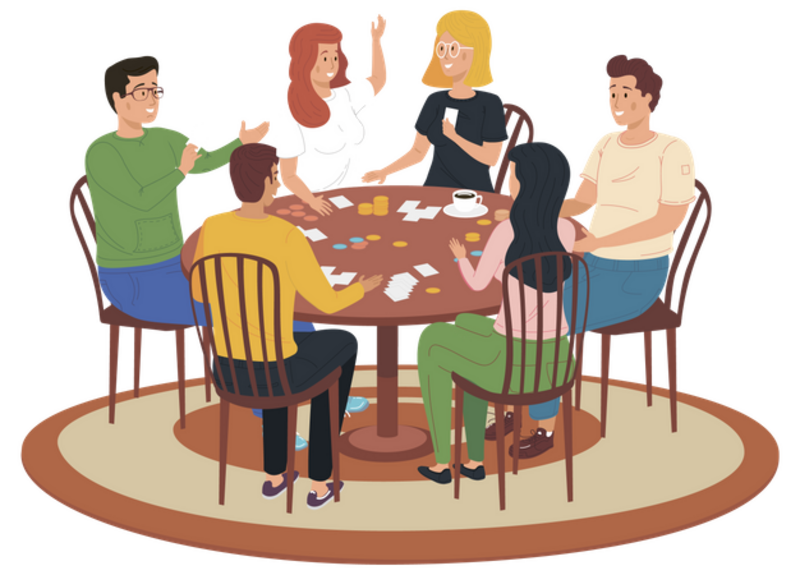

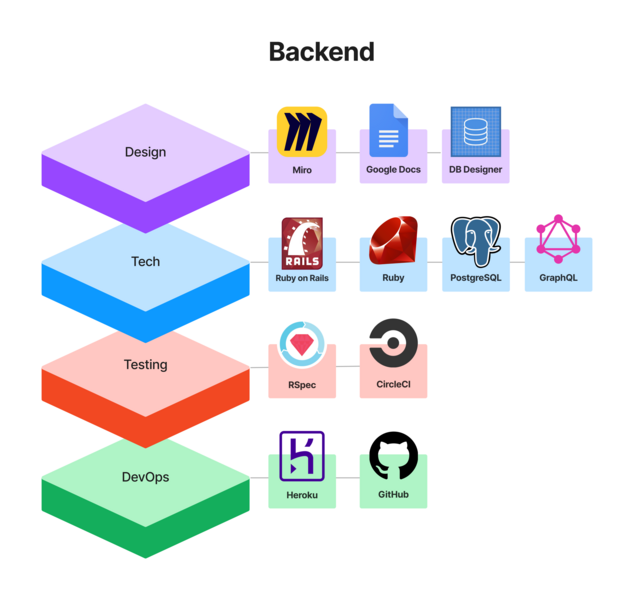
Little Esty Shop
Little Esty Shop
Tools Used
"Little Esty Shop" is a group project that builds a fictitious e-commerce platform where merchants and admins can manage inventory and fulfill customer invoices. Learning goals included practicing designing a normalized database schema and defining model relationships, utilizing advanced routing techniques, using advanced Active Record techniques to perform complex database queries, and practicing consuming a public API to apply OOP principles to organize code.


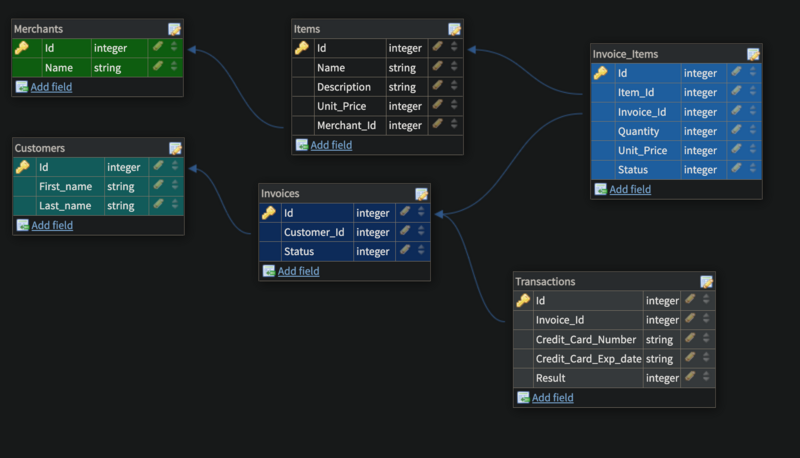
Connect Four
Connect Four
Tools Used
connect_four
Mostafa & Bryan paired project
This project aims to satisfy all four iteration requirements for the Connect Four paired project. Below will outline basic explanations of our setup, along with some intentional design choices one may encounter using this program and finally descriptions of processes used to develop this project to completion.
The foundation of this project uses a coordinate system to track pieces, with row and column being two separate classes working together like latitude and longitude on a map. Whether a particular spot is “playable” is triggered by the toggle_playable method in the row class, which prevents invalid moves from being played.
Rows are generated into the column section and can then be referenced by their relevant coordinate position at this point. See graphic above.
The turn class both passes through user input into the coordinate system and checks for win conditions after doing so. There are four different win conditions that are checked: vertical, horizontal, diagonal-left, and diagonal-right. All four methods are centered around the following two lines of code:
arr.chunk_while{ |a, b| a == b && a != "" }.any?{ |player_piece| player_piece.size >= 4 }
return arr.max_by{ |player| arr.count(player) }
This checks to see if there are any adjacent non-blank spaces that have pieces whose player name’s match each other. If they match in a number greater than or equal to four, it returns a win for that player. This same core code is used to define all four win condition methods.
Along with the stalemate method, all four win condition methods are tied into the connect_four method, allowing one method to run all conditions that determine a win.
In the tests, you will notice that test 5 of the game_spec.rb file occasionally fails. This is intentional to ensure that the bot is truly making random choices.
Additionally, there are two, 2-second pauses in the tests. These are from the timer_spec.rb file to test the functionality of the timer. The pauses during testing are intentional.
For iteration 4, we completed Two Human Players (THP) and Time Keeping (TK). THP will give the user a prompt to select a computer or bot to play against. TK records time to win, total wins and fastest win for the current session. The TK class is accessible through the terminal via user prompts and successful responses to see their statistics.
Our TK class does not keep track through sessions after the repeat game loop is terminated. This was due to a misunderstanding in what was being asked in iteration 4 requirements. While Win/Loss Record Keeping specifically states that records should persists between plays, this requirement was absent from TK. We reached out to the instructors to clarify this, but did not have ample time to change from what we had developed by that point. Therefore the TK class only tracks through the current session of games.
In unmerged branch feat/export_statistics we modified TK to have a writing function that would track these statistics through play sessions by ways of a .json file. This branch is mostly complete, but we did not have time to thoroughly finish and test before submitting, therefore did not merge it.
